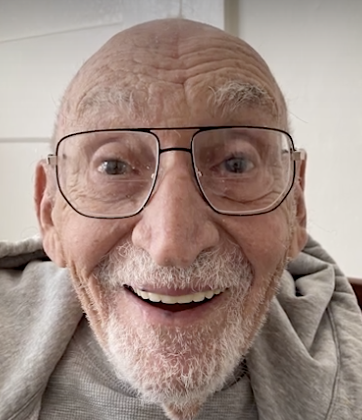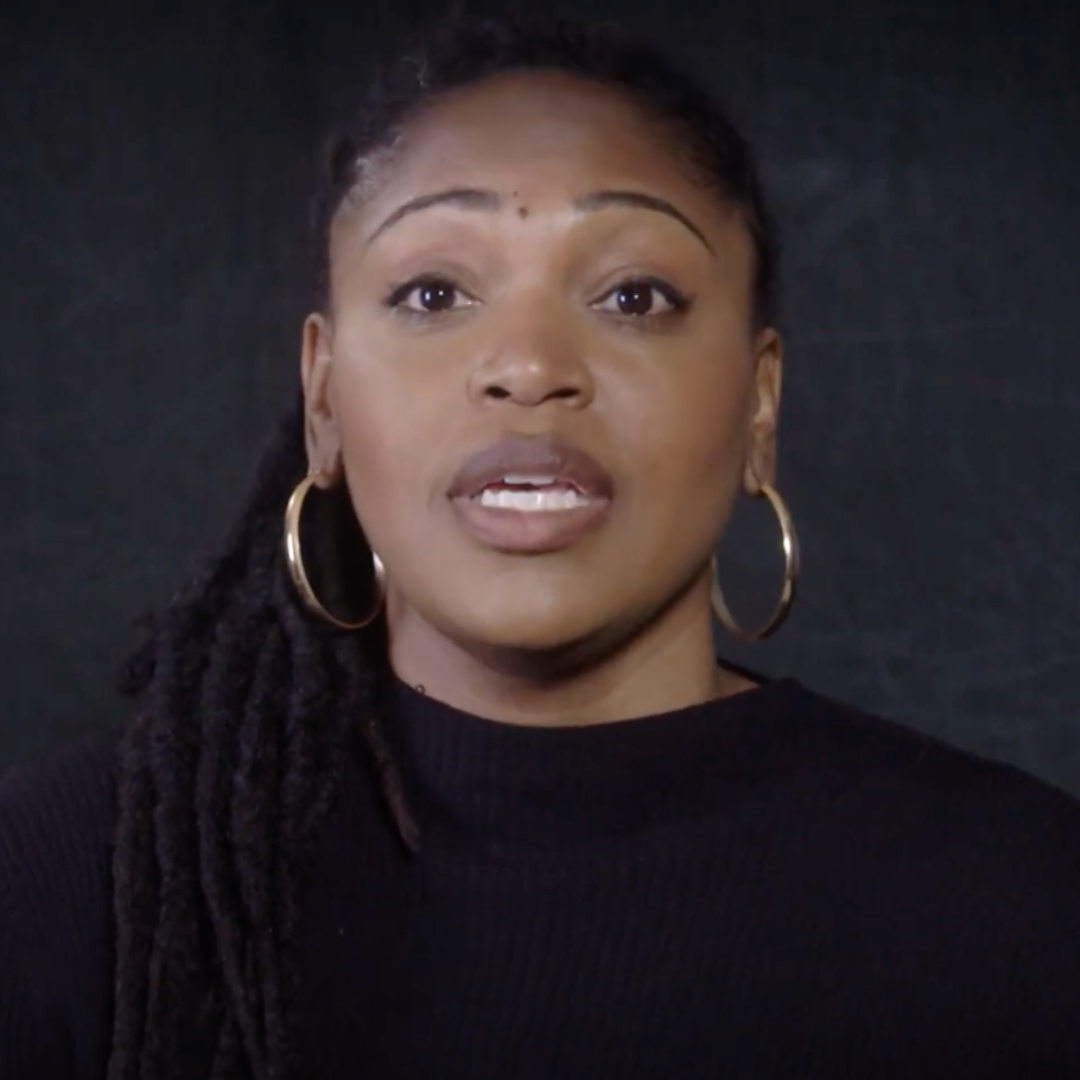Maine resident Karen Wentworth is the second patient to access the Maine Death with Dignity Act, which went into effect in September 2019. In the first installment of this three-part series, Karen shares excerpts from an essay she wrote after she obtained the death-hastening medication and began her preparation for death. Karen died peacefully on on January 12, 2023.
This piece contains three audio clips of Karen reading parts of her essay. To play a clip, click the triangle on the left-hand side of the black audio bar.
My altar holds beautiful rocks, a candle, feathers, a small crystal bowl of water, and a fabric drawstring bag printed with small womb-like boats floating across curling blue waves. Hyoscyamine, Haloperidol, Lorazepam, morphine, and DDMA are the prescription medications tucked into the bag. It easily fits onto my open palms and is surprisingly light. Four of the medications are the hospice comfort pack. Hyoscyamine sulfate reduces oral secretions, Haloperidol helps with nausea, Lorazepam soothes anxiety, and morphine blocks pain. The fifth medication, newly available to Maine residents, is DDMA, a combination of several drugs that can gently send me out of this life.
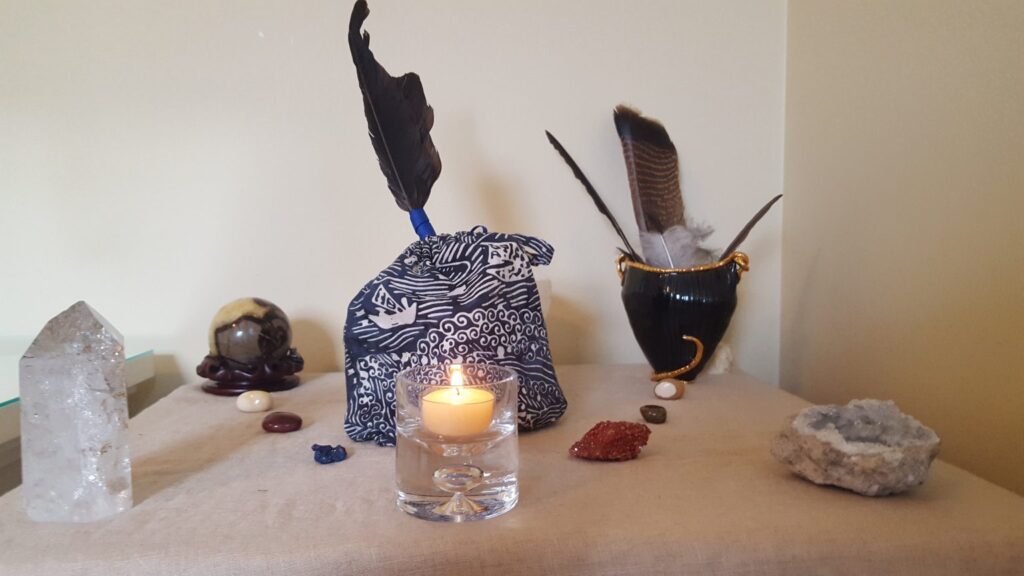
As I approach the end of my life, I find myself reflecting on its many different chapters. In my 63 years, I have worked in high-end restaurants and at nonprofits helping domestic violence survivors and youth in crisis. I owned a Greek and Italian specialty foods store. I’ve been a public school teacher, a book author, and a student of interfaith ministry. I’m a mother, a partner, a daughter, a sister, a friend, and someone living with terminal cancer.
After several traumatic surgeries and rounds of chemotherapy, my cancer is still with me. But I am no longer afraid of dying in a fog of pain.
Earlier this year, I qualified to use Maine’s Death with Dignity Act, giving me the ability to die peacefully, at a time and place of my choosing. The clarity of mind and control this has given me is immeasurable. I have such gratitude to the dedicated citizens of Maine who worked so hard to make this law a reality, and am glad I was able to do my part to help it pass.
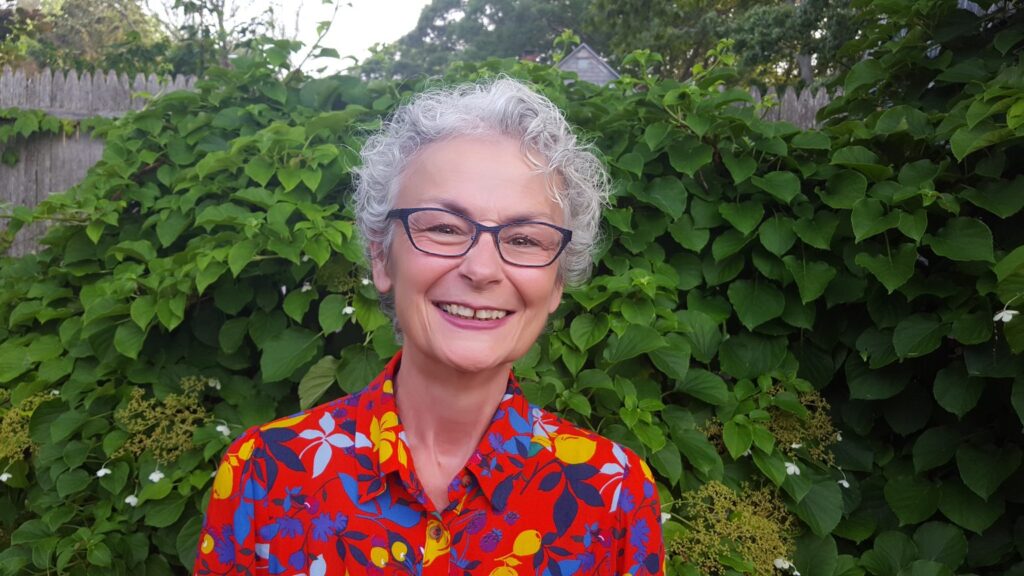
I don’t match the profile of someone who belongs in hospice. People say, “You look great, you look so much better, you’ve gained weight, look at the color in your face, such vitality!” All true. I don’t look or feel like a dying person. Yet, death’s breath is so close it sends chills through me like a November wind. According to doctors, my cancer should have caused my death by now, which is why I qualify for hospice and for DDMA with its offer of an alternative to a painful passing.
It is probable that my physical body will die from an intestinal blockage. Five years ago, I had a severe blockage. My first and worst. Within minutes my symptoms escalated to pain that had me gasping for air and barely able to speak. By the time the ambulance arrived, I deeply understood the expression “writhing in pain.”
Twenty-four hours later I had my second cancer-related surgery during which seventeen inches of dead intestine were removed. Four more surgeries and two chemotherapy baths followed bringing me to this point where there are no more solutions.
I’m ambivalent about taking DDMA as my preference is to experience a natural death. I’m curious about the process of dying, but DDMA is my option if a blockage leads to re-experiencing “writhing in pain.” In the case of ongoing, extensive symptoms, I prefer to get my daughter home for a final hug sparing myself and loved ones a prolonged demise.
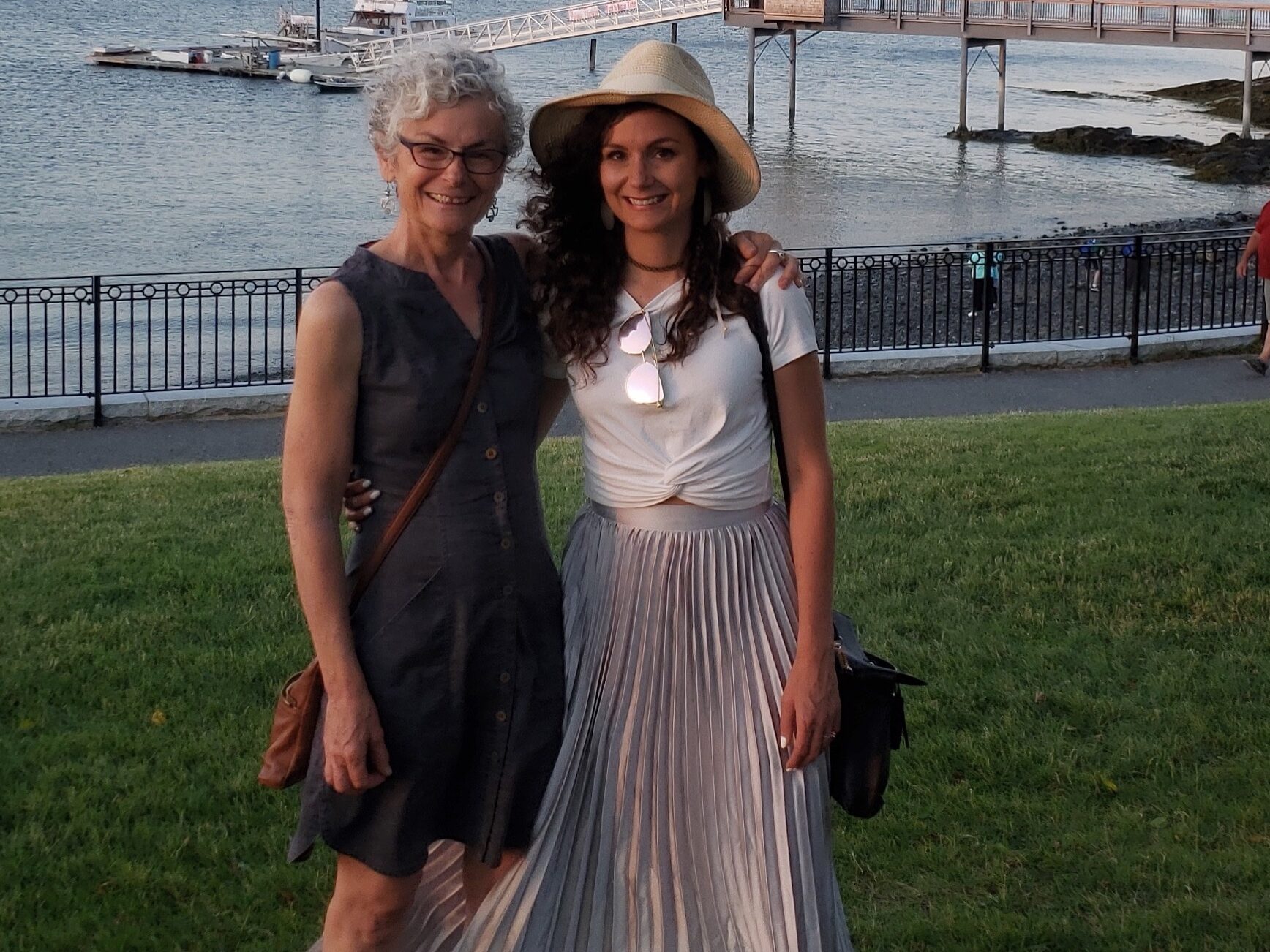
Predictions of my death prodded me to call upon my inner soldiers of control – the planner and the doer. Having DDMA allows me to believe I have a semblance of control over unbearable pain.
Yes, I am still alive, and this fact leaves the door open to despair – the unavoidable guest who arrives when cancer and death join hands and when breathing techniques can’t quiet the soul. Despair is clear-sighted, brutally honest, and hopeless. It lodges my pre-carved memorial stone in my heart, where its weight is almost intolerable. Controlling, planning, and doing are my tools for distracting despair. Once distracted, I’m free to go on with my day.
Another day, and yes, I am still alive, and still preparing for a small womb-like boat to birth me into death.
To read Part 2, click here. Part 3 can be found here.
In the Media:
Karen spoke about her decision to access Maine’s death with dignity law on the July 8, 2020 episode of the “Making the Call” podcast. Hosted by Drs. Ezekiel Emanuel and Jonathan Moreno, the episode also featured a conversation with Death with Dignity Executive Director Peg Sandeen exploring the ethics of medical aid in dying. Listen to the episode here.
